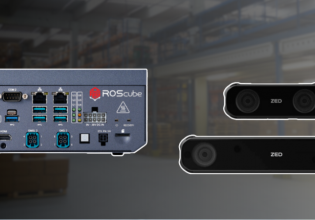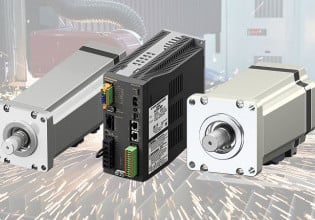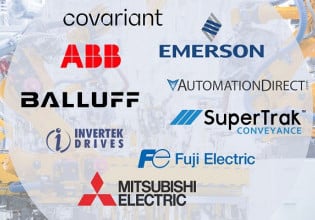I am taking a course in embedded systems at an Electronics school of engineering in the United States. I already have a two year technician degree in electrical systems. I want to work in the field of building control systems. It fits my work history which is in building construction (electrical). But I wonder if it is a waste of time, what I am doing now which is studying embedded systems for a bachelor's degree. How on earth does embedded systems engineering have anything to do with working on building controls? I doubt my boss is going to ask me questions about developing code for the MCU in some control panel. And in my time of working in construction I've seen an "engineer" come in and flash the control panel with his laptop - for building VAV/environmental units. How are one of the courses you take in embedded systems to be an engineer going to equal a job? There are courses in printed circuit board layout/PCB design. Is that something one should have if they are interested in TRANE Consiarge? Are there people who get these degrees and have trouble getting promoted because they know how to route a printed circuit board or develop source code for an MCU based embedded system?
United States Labor Market: How relevant is a degree in engineering for Building Control Systems?
- Thread starter preWarp
- Start date
Scroll to continue with content
This is a real mixed bag in the US. There are HR directors in companies that are using degrees for selection criteria to reduce possible applicants to consider. In some industries employers are recognizing that a degree is not as important as experience, while some won't consider anyone without a formal degreee regardless of experience.
Employers (good ones!) want people who can work both independently and in a team environment to contribute to a successful completion of a project. What good employers want is someone with demonstrated experience in successful project execution and completion along with experience and knowledge.
Your job as an applicant is to promote your experience in project execution and successful completion. That may take extra effort on your part to understand the business and customize your application--but that can be the difference for you.
A degree says this: I set a long-term goal for myself and I was able to focus and execute to achieve my goal and earn that degree. I did some things I enjoyed; I did some things I didn't enjoy, but I was focused and committed and earned my degree. That is one kind of separation--earning that degree--that employers can use to select quality applicants.
That means that you need to emphasize your experience and skills and demonstrated abilities to work independently and/or as part of a team that successfully completed a task, by having some metrics (increased efficiency; improved production; reduced costs; etc.) you can list as part of your qualifications.
ANY training you have completed--either employer-paid or self-paid--should also be promoted and emphasized. If you can tie the training to successful task completion that will be very good.
I worked for decades in field service and commissioning, and some of the best people I worked with DID NOT have a formal degree. They had something better--common sense and experience and a demonstrated ability to use both to achieve successful outcomes. In some cases, customers would specifically ask for these people over unknown field engineers with degrees--because they knew or had experience with people with this kind of expertise in solving complex problems or dealing with unique situations. The more you can do to accentuate any abilities you have--in a concise manner--can benefit you when looking for new employment.
Honestly, it's really about your ability to accentuate your experience and abilities, things employers really look for in technical fields, particularly. Think about what you would want to know about an unknown potential employee--and then present it in a concise manner with any solid metrics you can provide (productivity improvement percentages; cost improvement percentages; etc.). These are things a lot of inexperienced degreed applicants can't always provide.
Be your best promoter! You have experience, which most employers value highly. It's up to you to highlight that experience and present it in the best possible light. A lot of degreed people only have that piece of paper (degree) that shows one kind of focus and commitment but an employer is likely going to have to make an investment in training and familiarization to get that person to be a valuable asset, whereas someone with experience and commitment can probably make those contributions without as much training and familiarization.
It's not an easy thing to do--self promotion. But it's necessary and important in this particular situation. You may have to invest significant time and multiple efforts to arrive at a good and descriptive application/cover letter that doesn't require four pages and a lot of time on the reader's part. But, that also shows a level of commitment and desire that employers are looking for.
A degree IS NOT the be-all and end-all that employers are always looking for. Many of the colleagues I worked with and learned the most from DID NOT have even a two-year degree; they had street smarts and an ability to apply what they knew and experience to go with that. Learning is often about discovering what you already knew (think about how many times you have "learned" something new and said to yourself, "I knew that!" because it was explained to you in a way that made sense or was "obvious"). Not all degreed technical people have that ability to think critically (though they should) and be open to ideas and concepts not previously known to them or previously exposed to. Sometimes physical principles are intuitively obvious to people--with or without a degree--and a clear ability to use clear critical thinking to apply that knowledge and solve problems or implement solutions.
Lastly, remember--even in a technical field the job can be as much as 70% people skills and 0nly 30% technical skills. It's not always knowledge or even experience. It's being able to apply that knowledge and experience (and critical thinking skills) to influence or contribute to a successful resolution or solution. And confidence can be just as important as competence--with or without a degree. That degree just opens doors--doors which can also be opened by good self promotion. Confidence and competence without braggadocio. (Part of that 70% people skills part of the equation....)
Employers (good ones!) want people who can work both independently and in a team environment to contribute to a successful completion of a project. What good employers want is someone with demonstrated experience in successful project execution and completion along with experience and knowledge.
Your job as an applicant is to promote your experience in project execution and successful completion. That may take extra effort on your part to understand the business and customize your application--but that can be the difference for you.
A degree says this: I set a long-term goal for myself and I was able to focus and execute to achieve my goal and earn that degree. I did some things I enjoyed; I did some things I didn't enjoy, but I was focused and committed and earned my degree. That is one kind of separation--earning that degree--that employers can use to select quality applicants.
That means that you need to emphasize your experience and skills and demonstrated abilities to work independently and/or as part of a team that successfully completed a task, by having some metrics (increased efficiency; improved production; reduced costs; etc.) you can list as part of your qualifications.
ANY training you have completed--either employer-paid or self-paid--should also be promoted and emphasized. If you can tie the training to successful task completion that will be very good.
I worked for decades in field service and commissioning, and some of the best people I worked with DID NOT have a formal degree. They had something better--common sense and experience and a demonstrated ability to use both to achieve successful outcomes. In some cases, customers would specifically ask for these people over unknown field engineers with degrees--because they knew or had experience with people with this kind of expertise in solving complex problems or dealing with unique situations. The more you can do to accentuate any abilities you have--in a concise manner--can benefit you when looking for new employment.
Honestly, it's really about your ability to accentuate your experience and abilities, things employers really look for in technical fields, particularly. Think about what you would want to know about an unknown potential employee--and then present it in a concise manner with any solid metrics you can provide (productivity improvement percentages; cost improvement percentages; etc.). These are things a lot of inexperienced degreed applicants can't always provide.
Be your best promoter! You have experience, which most employers value highly. It's up to you to highlight that experience and present it in the best possible light. A lot of degreed people only have that piece of paper (degree) that shows one kind of focus and commitment but an employer is likely going to have to make an investment in training and familiarization to get that person to be a valuable asset, whereas someone with experience and commitment can probably make those contributions without as much training and familiarization.
It's not an easy thing to do--self promotion. But it's necessary and important in this particular situation. You may have to invest significant time and multiple efforts to arrive at a good and descriptive application/cover letter that doesn't require four pages and a lot of time on the reader's part. But, that also shows a level of commitment and desire that employers are looking for.
A degree IS NOT the be-all and end-all that employers are always looking for. Many of the colleagues I worked with and learned the most from DID NOT have even a two-year degree; they had street smarts and an ability to apply what they knew and experience to go with that. Learning is often about discovering what you already knew (think about how many times you have "learned" something new and said to yourself, "I knew that!" because it was explained to you in a way that made sense or was "obvious"). Not all degreed technical people have that ability to think critically (though they should) and be open to ideas and concepts not previously known to them or previously exposed to. Sometimes physical principles are intuitively obvious to people--with or without a degree--and a clear ability to use clear critical thinking to apply that knowledge and solve problems or implement solutions.
Lastly, remember--even in a technical field the job can be as much as 70% people skills and 0nly 30% technical skills. It's not always knowledge or even experience. It's being able to apply that knowledge and experience (and critical thinking skills) to influence or contribute to a successful resolution or solution. And confidence can be just as important as competence--with or without a degree. That degree just opens doors--doors which can also be opened by good self promotion. Confidence and competence without braggadocio. (Part of that 70% people skills part of the equation....)
Thank you for your reply. I definitely needed your help. I went over my concerns about embedded systems. I thought what is a way that someone with this training could benefit a project and I realized that in the back of my mind I've told myself that knowing something about how a control system actually works, down to the embedded system level, can sometimes lend an improved understanding. You have me realizing that this understanding could make a difference in a "project" or mission situation. But it is costly in time and energy to learn about embedded systems. So, I have often ignored any appreciation I had for improved understanding because there are many situations where no one close at hand is thinking about project management. But then again I think if I could ask myself what I know and what I need to find out for the purpose of expediting a job -- this is different from thinking my boss just wants me to get this done and doesn't care how I do it.
So these ideas you shared with me got me to considering the internet of things as it might apply to a building control system. I felt as though training in embedded systems could be important. More so than in a context where the building control system is comprised of proprietary circuit boards and manufactured panels.
The only problem is I know I am on to something but employers are emphasizing the programming skills one should acquire to work in the field of IoT. For example, in the warehouse market, the IoT provider is selling programming skills alone. They are promising a system based on their ability to develop it in terms of software. Maybe this is because the system in place in a warehouse is purely software based? In fulfilment there is a sorter for packages going out. Front line works such as order pickers and forklift drivers have handheld scanners. The warehouse inventory management system is provided by some system provider. Networking is taken care of by IT professionals. There is an opportunity for IoT in terms of the fire alarm, the security alarm, and electronic locks. So then the IoT provider works soley with the computer system alone. Making the data meaningful. But I thought IoT was about computing on the edge and sensors? If they are not careful IoT is going to take the place of building a package sorter or automatic package machine - things once done by system integrators and OEM companies. I'm really having problems understanding what employee works with embedded sensors in IoT? Or does IoT depend on the sensors already being in place making IoT more about software development?
So these ideas you shared with me got me to considering the internet of things as it might apply to a building control system. I felt as though training in embedded systems could be important. More so than in a context where the building control system is comprised of proprietary circuit boards and manufactured panels.
The only problem is I know I am on to something but employers are emphasizing the programming skills one should acquire to work in the field of IoT. For example, in the warehouse market, the IoT provider is selling programming skills alone. They are promising a system based on their ability to develop it in terms of software. Maybe this is because the system in place in a warehouse is purely software based? In fulfilment there is a sorter for packages going out. Front line works such as order pickers and forklift drivers have handheld scanners. The warehouse inventory management system is provided by some system provider. Networking is taken care of by IT professionals. There is an opportunity for IoT in terms of the fire alarm, the security alarm, and electronic locks. So then the IoT provider works soley with the computer system alone. Making the data meaningful. But I thought IoT was about computing on the edge and sensors? If they are not careful IoT is going to take the place of building a package sorter or automatic package machine - things once done by system integrators and OEM companies. I'm really having problems understanding what employee works with embedded sensors in IoT? Or does IoT depend on the sensors already being in place making IoT more about software development?






